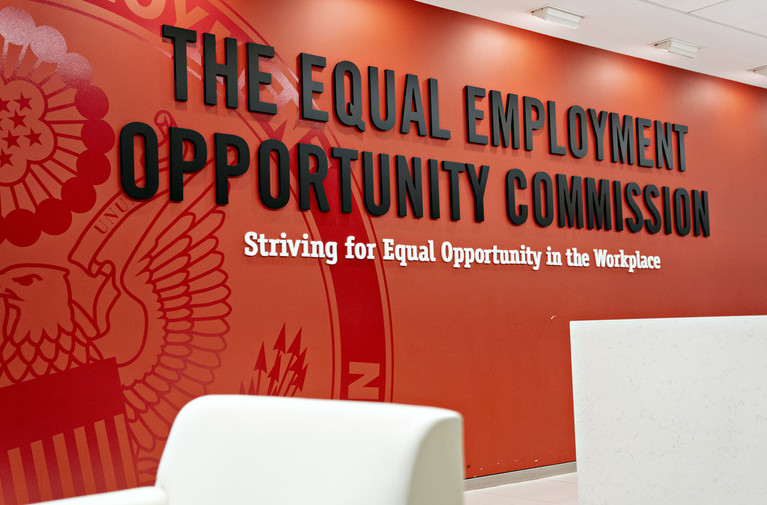Chicago, IL – August 21, 2025 – Recent lawsuits filed by the U.S. Equal Employment Opportunity Commission (EEOC) against healthcare providers like Mercyhealth and Mayo Clinic signal a heightened focus on workplace discrimination related to COVID-19 vaccine mandates. These legal actions, centered on religious and disability accommodations, may offer a glimpse into the EEOC’s future enforcement priorities as workplaces continue to navigate the evolving landscape of employee rights and public health policies.
Background on Recent EEOC Lawsuits
In a significant settlement announced on August 13, 2025, Mercyhealth, a healthcare system operating in Illinois and Wisconsin, agreed to pay over $1 million to a class of employees who were terminated or faced wage deductions for refusing COVID-19 vaccines due to religious beliefs. The EEOC’s investigation found that Mercyhealth failed to provide reasonable accommodations, violating Title VII of the Civil Rights Act of 1964, which prohibits discrimination based on religion. The settlement includes back pay, compensatory damages, and mandates for Mercyhealth to revise policies and train staff on handling religious accommodation requests.
Similarly, on July 31, 2025, the EEOC filed a lawsuit against Mayo Clinic, alleging that the hospital coerced a security guard into receiving a COVID-19 vaccine despite his religious objections. The agency claims Mayo Clinic threatened termination, effectively forcing the employee to violate his beliefs to keep his job. This case, filed in the U.S. District Court for the District of Minnesota, underscores the EEOC’s stance that employers must respect sincerely held religious beliefs unless accommodations impose an undue hardship.
Additionally, the EEOC filed lawsuits against Silver Cross Hospital in Illinois, accusing the hospital of denying religious and disability accommodations to employees who objected to its vaccine mandate. These cases highlight a pattern of enforcement targeting healthcare employers, a sector heavily impacted by vaccine policies during the pandemic.
What These Suits Signal for Employers
The EEOC’s recent actions suggest a robust approach to enforcing anti-discrimination laws, particularly under Title VII and the Americans with Disabilities Act (ADA). The agency has consistently emphasized that employers can mandate vaccinations but must provide reasonable accommodations for employees with disabilities or sincerely held religious beliefs, absent undue hardship.
The Mercyhealth settlement and Mayo Clinic lawsuit reflect the EEOC’s interpretation of “undue hardship” following the Supreme Court’s 2023 decision in Groff v. DeJoy. The ruling clarified that employers must demonstrate a substantial burden to deny religious accommodations, rejecting minor inconveniences as sufficient grounds. This precedent appears to be shaping the EEOC’s litigation strategy, as seen in a recent federal sector decision where the Federal Reserve Board was held liable for denying a Christian police officer’s vaccine exemption request.
Legal experts note that these suits may foreshadow broader EEOC enforcement. “The EEOC is signaling that it will closely scrutinize employer policies that fail to balance public health measures with individual rights,” said Andrew Scroggins, a labor and employment attorney at Seyfarth Shaw. “Employers should expect continued focus on religious and disability accommodations, especially in industries with strict safety protocols.”
Broader Implications for Workplace Policies
The EEOC’s actions come at a time when workplace vaccine mandates remain a contentious issue. While the public health emergency for COVID-19 ended in May 2023, the legal ramifications of pandemic-era policies continue to unfold. The EEOC’s guidance, last updated in May 2023, allows employers to require vaccinations but cautions against policies that disproportionately impact protected groups or fail to accommodate valid exemptions.
These lawsuits also highlight the EEOC’s focus on confidentiality and non-coercive incentives. For instance, the agency has clarified that employers can request vaccination proof but must keep such information confidential under the ADA. Additionally, while incentives for vaccination are permissible, they must not be so substantial as to pressure employees into disclosing protected medical information.
What’s Next for the EEOC?
The EEOC’s recent activity suggests several potential directions for future enforcement:
- Increased Scrutiny of Religious Accommodations: The Groff v. DeJoy decision has raised the bar for employers to deny religious exemptions, and the EEOC appears poised to leverage this precedent to challenge non-compliant policies.
- Focus on Disability-Related Claims: The rise in ADA-based lawsuits, which accounted for 41% of EEOC filings in 2024, indicates a continued emphasis on protecting employees with disabilities, including those seeking vaccine exemptions due to medical conditions.
- Navigating State and Federal Tensions: Some states, like Montana and Texas, have enacted laws limiting vaccine mandates or protecting unvaccinated employees, creating potential conflicts with federal EEO laws. The EEOC’s guidance emphasizes federal compliance but acknowledges that state laws may impose additional restrictions.
- Proactive Guidance and Training: The EEOC has stressed the importance of employer training to recognize and process accommodation requests. Future efforts may include updated technical assistance to address evolving workplace dynamics, such as hybrid work arrangements or new public health challenges.
Advice for Employers
To avoid EEOC scrutiny, employers should:
- Review and update vaccination and accommodation policies to align with current EEOC guidance and Groff v. DeJoy.
- Train managers to recognize verbal or written accommodation requests and direct them to human resources.
- Maintain confidentiality of vaccination records and ensure non-coercive incentive programs.
- Engage in an interactive process to evaluate reasonable accommodations, such as remote work, masking, or testing, for employees with valid exemptions.
Conclusion
The EEOC’s recent vaccine-related lawsuits against Mercyhealth, Mayo Clinic, and others serve as a warning to employers: robust public health measures must coexist with respect for employee rights under federal anti-discrimination laws. As the agency continues to refine its approach in light of legal precedents like Groff v. DeJoy and evolving workplace norms, these cases may indeed preview a broader enforcement agenda. Employers across industries, particularly in healthcare, should proactively assess their policies to ensure compliance and avoid costly litigation.
